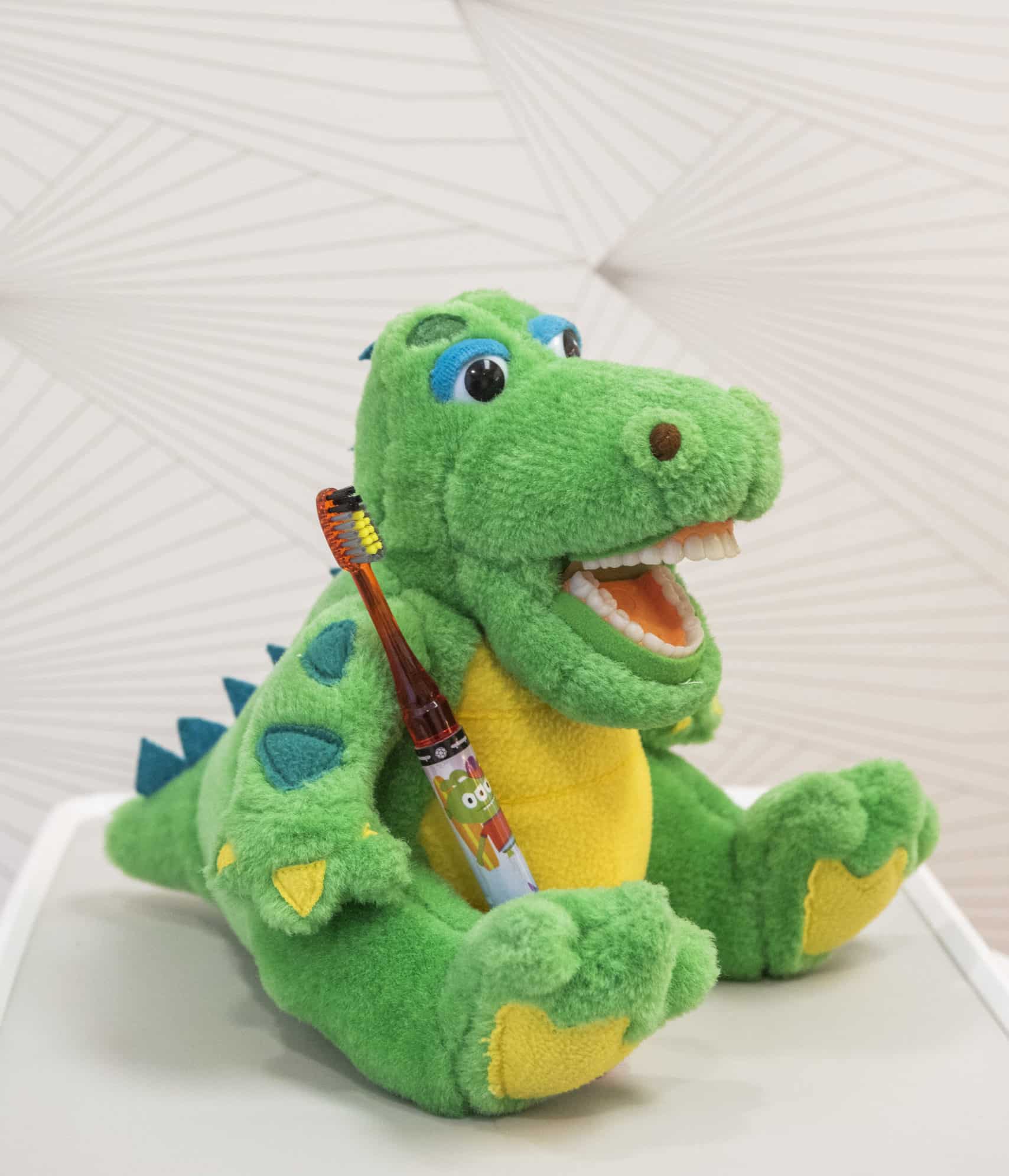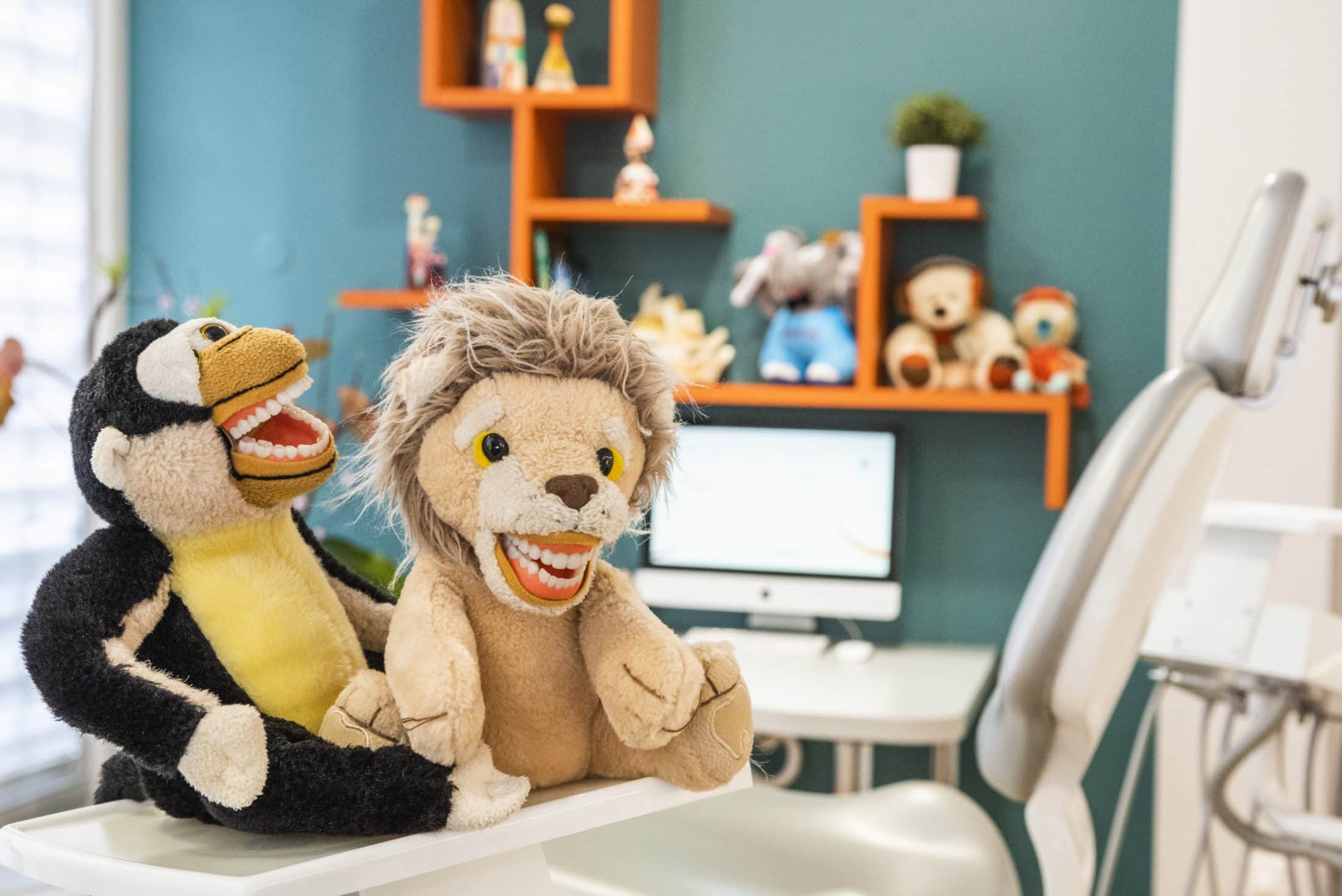The office is closed between July 26 and August 23 included. Until we see you again in the fall, we wish you a wonderful sunny vacation!
The office is closed for the end of year vacations between December 18th and January 6th included.

Baby teeth are essential to your child's development, and serve multiple functions, including chewing and pronunciation, as well as maintaining spacings for incoming permanent teeth. Problems with baby teeth, including cavities, can then compound and spread to the permanent teeth.
Therefore, from the moment the first tooth makes its appearance, daily brushing and good oral hygiene become imperative for ensuring healthy baby, and permanent, teeth.
We recommend that you assist and monitor your child's toothbrushing until they reach 8-10 years old.
Your child should brush for at least 2 minutes, making sure to get both the teeth and gums:
As it's often difficult to brush teeth at school, your child can alternatively rinse their mouth and/or chew sugarless gum.
Attention! Your child should not eat or drink anything after brushing their teeth in the evening- except for water!
Children sure do love sweets (fruits, bread, pastries, cookies, candy), as well as sugar-filled drinks (fruit juice, soda, milk…). Sometimes they consume these throughout the entire day! In short, their mouths are filled with sugar, which bacteria then transform into acids that attack the teeth. This is very dangerous because children have less tooth enamel to protect their teeth.
It's therefore important to limit snacking and to get your child in the habit of only drinking water in between meals. These good eating habits will help your child grow up with healthy teeth!
Don't forbid your child sweets, but rather encourage them to brush their teeth afterwards.
Attention! A 30-minute wait is necessary before brushing after snacking. During this time period, the temporary increase in mouth acidity renders toothbrushes more abrasive.
Never share spoons, icecream, cups, or a toothbrush with your child.

Cavities are contagious, and children's teeth are very susceptible to bacteria that can be found in adult's mouths (in particular if it's been a while since the adult has been to the dentist!)
Cariogenic bacteria can pass from the parent (or babysitter) to the child: for example, when an adult demonstrates taking a delicious spoonful from the tiny baby food jar, or shares an ice cream cone.
Regular pediatric dental visits are recommended every 6 months or, at minimum, every year.

Checkups allow the pediatric dentist to remove plaque from your child’s teeth, stop any developing cavities, and address any issues with your child’s brushing habits. Cavities that go untreated will only continue to grow !
Your pediatric dentists can also administer fluoride treatments, following l’Haute autorité de la santé recommendations.
Regular dental visits are the first step to helping your child maintain good oral hygiene!
About Us
Consultations are by appointment only. In the case of an emergency, please contact the dental office.
Information & Recommendations
Pedodontist: Doctor Adriana Agachi Adeli: 75 4 715431 | RPPS: 10100340396